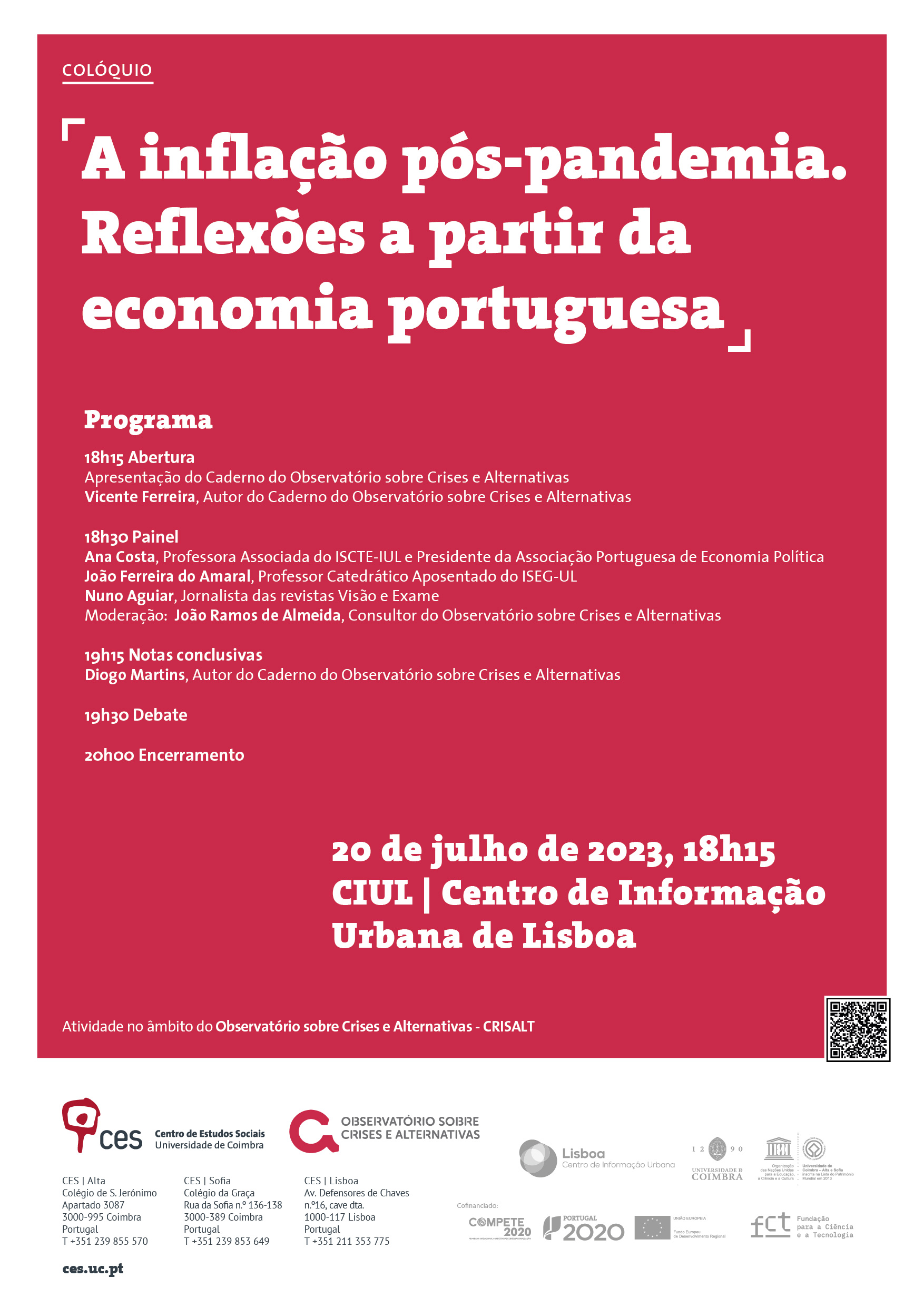Colloquium
Post-pandemic inflation - reflections from the Portuguese Economy
July 20, 2023, 18h15
CIUL | Centro de Informação Urbana de Lisboa
About
Between the second half of the 1990s and the beginning of the pandemic, inflation was absent from the centre of the economic debate in Portugal and in most developed economies. Within the main macroeconomic currents, as well as in the most relevant European and national institutions, inflation was seen as a problem of the past. Success was attributed to the new macroeconomic management framework that emerged at the end of the 20th century, based on the institutional figure of the independent central bank with a price stability mandate.
Similarly, the turn of the 21st century brought, for many, the conviction that acute economic crises were a phenomenon of the past, at least in the more advanced economies. The triumphalism, however, would prove to be exaggerated: the Great Recession of 2007-08 shook not only the global economy but also the foundations of contemporary consensus in the discipline. Post-pandemic inflation seems to have produced a similar effect. After an initial period marked by a sharp contraction in economic activity globally, resulting from the lockdown measures adopted by governments that forced the closure of much of the activity, the gradual reopening of economies was accompanied by a return of inflation to values that had not been seen for several decades. The outbreak of war in Ukraine and its impact on international energy markets accentuated this dynamic and caused inflation to soar to levels that had not been seen for a long time: in the Eurozone, it reached 10.6% in October 2022, and in Portugal, it reached 10.1%.
The return of inflation has also resulted in the return of the theoretical debate on the origin, propagation mechanisms and consequences of the inflationary surge, as well as on the necessary responses. In the Caderno that the Observatory on Crises and Alternatives now issues - and which represents the most complete study to date on the subject - we seek to contribute to this debate and answer some questions:
1. What are the origins and propagation mechanisms of contemporary inflation in Portugal and the Eurozone?
2. What underpins the different interpretations of the inflationary phenomenon?
3. What public policies are most appropriate in the face of inflation of this nature?
During the colloquium, we will hear from the authors of the Caderno and from specialised economists and journalists, before the Q&A.
Support


